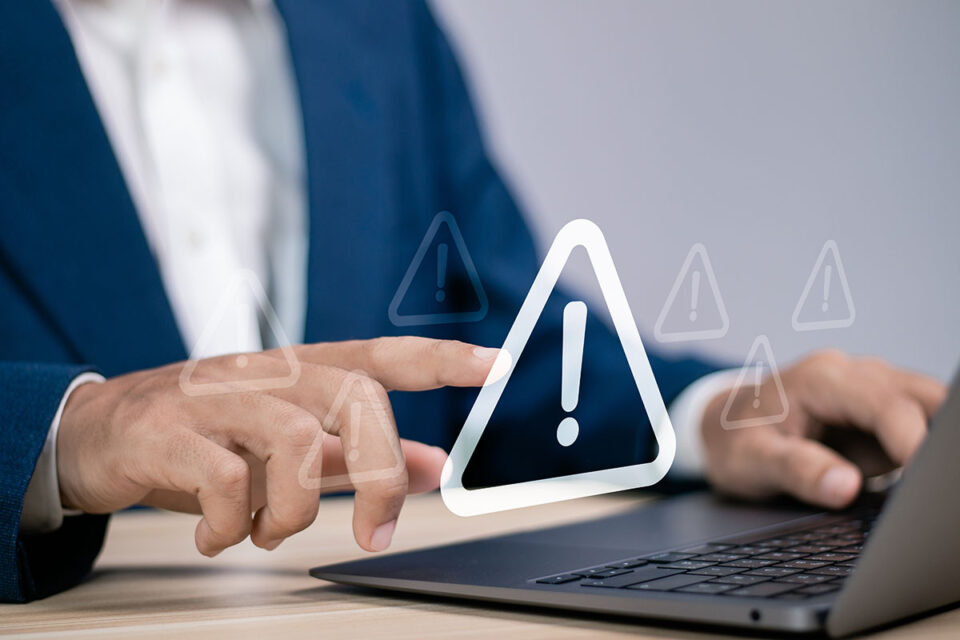Remote proctoring vs invigilators: 20 questions to ask

If you’re currently setting exams in venues with invigilators, you may have heard of the benefits of remote proctoring, and are wondering whether it’s a good fit for your organisation.
There’s a lot to consider, with pros and cons to each testing method. In this article, we’ve listed what we believe are 20 crucial questions that can help you decide between the two, including short explanations of why they’re important to ask.
We hope they help you make an informed decision for your institution or organisation.
Note: these questions are based on the assumption that you’re already setting digital assessments. If your assessments are paper-based and you’re thinking of going digital, anything related to costs and growth is amplified because of how much more affordable and scalable digital testing is – especially when delivered remotely.
Test integrity
Q: What are the stakes for my assessments?
Remote proctoring software has reached a point where its AI can detect cheating extremely well. It monitors every candidate constantly – something that human invigilators can’t do. But if your tests are high stakes, you might also consider choose a software (and plan) that supports live human invigilators for an extra layer of protection.
Alternatively, in-venue testing with invigilators remains a tightly-controlled environment and still offers the highest academic integrity.
Q: How does cheating compare for the two methods?
As mentioned above, remote proctoring software catches cheating through AI-powered monitoring, which has become powerful. Violations are typically flagged, and then a staff member reviews them once the test is over. While remote proctoring does provide new cheating opportunities, many of them are mitigated with quality monitoring technology and a solid quality assurance process for monitoring reviews.
Cheating tends to be harder for venue-based tests, though far from impossible. Candidates can be very creative with written notes, concealed earphones, and other methods.
For identity verification, remote proctoring uses advanced facial recognition tech to compare candidates’ faces to their IDs. It’s highly effective but may not be as discerning as a staff member who knows a candidate’s face.
Q: How much human involvement do we want for our exams?
AI has become excellent at detecting cheating for remotely-proctored tests, but it still requires the discerning eye of a human to review flagged violations. You may want to go one step further and employ live proctors to monitor candidates as they complete their tests (in addition to the AI monitoring them).
You’ll want to understand exactly how your proctors/invigilators can work with the proctoring software to achieve academic integrity.
Scalability
Q: How important is it for my institution or organisation to scale?
If you’re looking to grow your assessment business, venue-based testing makes it difficult because venues and invigilators are expensive and take time to organise. You’re also restricted to targeting candidates in certain cities and countries, unless you want to set up additional venues and hire extra staff.
Because remote proctoring tests are taken at candidates’ homes and typically without human invigilators, they don’t have any of these limitations, which makes them much more amenable to business growth.
Q: Are my candidates spread across different cities or countries?
If so, remotely proctored online exams are a much more cost-effective solution because you won’t need exam venues in each location. This also allows you to scale more easily.
Q: How many tests do we set each year?
If you set lots of tests each year, venue testing is expensive because of you’ll need plenty of venues and invigilators. Exam proctoring software is much more cost- and time-effective with large-scale testing.
Q: Do we have access to exam venue spaces in the areas we target?
If you’re thinking of running venue-based tests, the areas you want to target may not have suitable venue spaces for your candidates, so you’ll need to check this before committing. This extends not just to the areas you currently target, but to cities and towns you may want to target in the future.
Q: Will my candidates provide their own devices for venue-based tests?
If you ask candidates to provide their own test devices for your venue-based exams, you won’t have to manage or hire your own, which can be very expensive. On the other hand, you’ll need to provide plenty of quality support to candidates with validating and setting up their own devices for your tests.
If you provide your own devices, they’re pre-set up by your IT staff and candidates just need to arrive and start their tests. This tends to feel much smoother.
Q: What are the cost comparisons of the two types of testing?
With no venues or invigilators to organise, remote proctoring is far more affordable than venue-based testing. For a rough comparison, you’ll need to calculate costs like venue hire, staffing, hardware, the remote proctoring software, and others. You may find that remote proctoring is anywhere from 25% to 50% cheaper per candidate.
Q: How does organising exams compare between the two types of testing?
Both remote proctoring and venue-based testing take time and effort to coordinate, particularly for large-scale tests. But remote proctoring has the clear advantage because of the lack of venues and invigilators to arrange.
Accessibility and usability
Q: Are candidates in areas with limited internet connectivity?
Proctoring software requires an internet connection to work. Some apps (like ours) allow candidates to take tests offline, but they still require an initial internet connection to download the test, and then re-upload their test data once complete. If they have limited access to the internet, this can make testing a little more difficult for them.
If venues have reliable internet, venue-based testing doesn’t suffer from this issue.
Q: Will candidates have access to the tech required for remote proctoring tests?
Exam proctoring software requires a few important things to work:
- A low-to-mid spec computer that can comfortably run the software.
- A webcam and microphone, typically integrated into the laptop.
If candidates are unlikely to have access to this technology, or you can’t provide it to them, in-venue testing is a better option.
Q: Can candidates access your exam venues?
If you’re considering venue-based testing, you’ll need to ensure your venues are located in places that are reasonably easy to reach for targeted candidates, including on public transport.
Q: How tech-savvy are your candidates?
Candidates use their own devices for remote proctoring, which requires a few technical steps:
- The device should be validated to ensure it meets the minimum system requirements. This typically happens through an automated test.
- The remote proctoring software must be downloaded and installed.
- When candidates are ready to take their test, they need to log into the system and start.
If your candidates belong to a demographic that isn’t typically good with computers, you’ll need to provide them with extra support to get set up. In this instance, venue-based testing may be preferable.
Q: How important is a quiet test environment?
With venue-based testing, you can provide a quiet environment that allows candidates to focus. For those completing tests remotely, typically at home, they can try their best to create a quiet environment, but it may be more challenging.
Candidates
Q: What type of testing might our candidates prefer?
Providing a great test experience to your candidates is important, so you’ll want to consider whether they might prefer remote or venue-based testing. You can gauge this by analysing their demographics, as well as conducting surveys and interviews.
Typically, candidates will prefer taking remote tests at a time of their choosing, because it’s much more convenient. But it’s worth researching to make sure.
Q: Will candidates be comfortable with the amount of data stored for remote proctoring?
Remote proctoring software captures a lot of data, including personal and behavioural information. It’s worth considering whether your candidates will be comfortable with the data that is captured through this testing method.
Other
Q: Will remote proctoring software integrate with my current systems?
If you’re considering remote proctoring, you’ll want to ensure that the software integrates properly with your existing systems – particularly your assessment platform. Many modern online proctoring software apps integrate seamlessly with a number of external apps.
Q: How are candidates supported for each testing method?
For venue-based tests, candidates are supported directly by invigilators, which they tend to prefer because it’s generally fast and easy. For remote tests, they can typically get help by calling your support team, of which there may be multiple levels depending on the complexity of the request. You might also consider providing other fast support options like live chat.
Support for remote testing is usually more complex and expensive, and you’ll need to ensure it works for your organisation.
Q: Are there any regulatory of compliance requirements I need to fulfil?
If you’re planning on using online proctoring software, you’ll need to ensure this form of testing meets the necessary regulations or compliance requirements, including exactly how it’s conducted.

Janison
Janison is a leading edtech provider transforming the way assessments are delivered and experienced worldwide.





